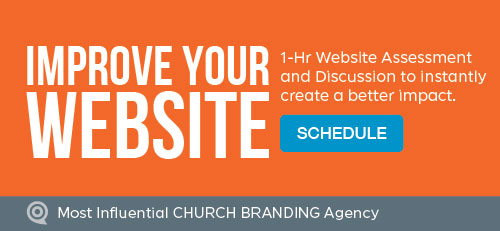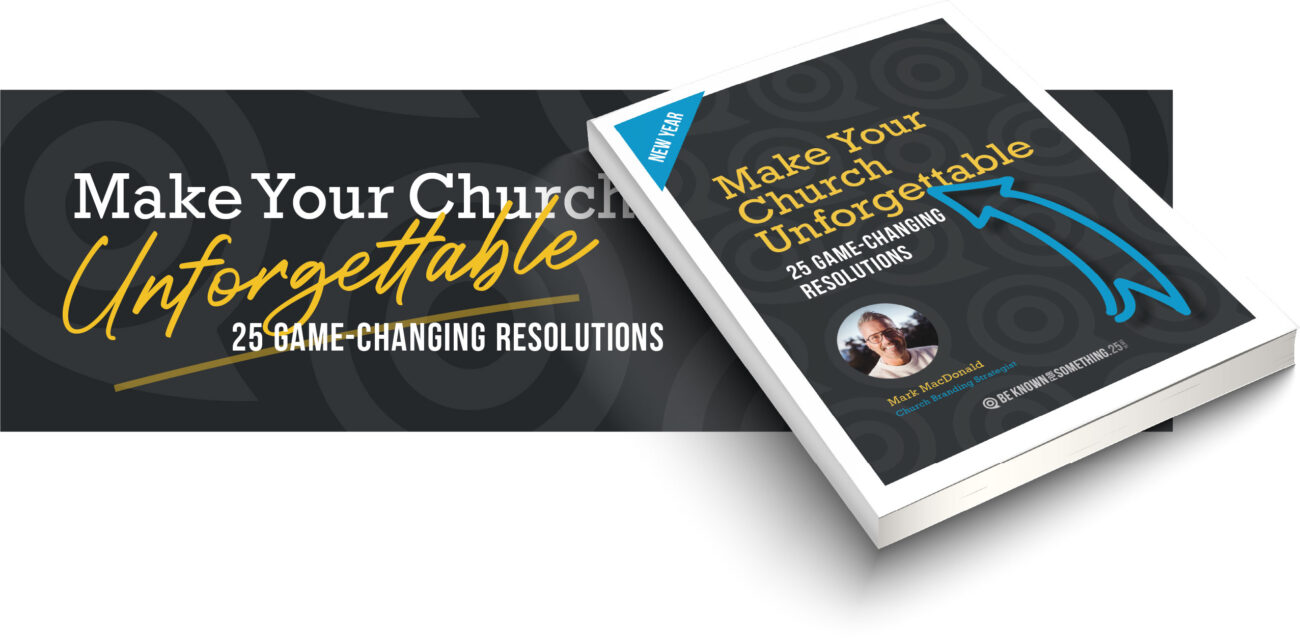5 Cautions for Churches with WordPress Websites
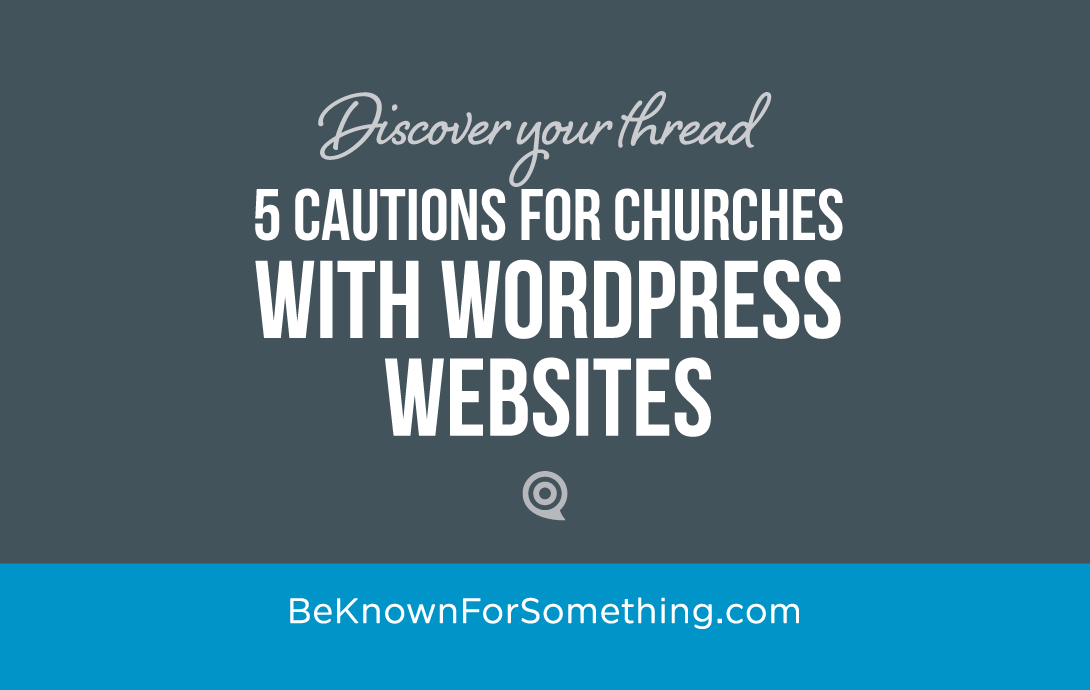
Congratulations! Choosing to create your church website on WordPress means you’re using the very popular church content management system (CMS) that’s open source, free (non-proprietary), and highly adaptable. We highly recommend it for creating and maintaining your church website!
But before you celebrate too much, remember a church website is never done. Your content must be constantly kept current and desired, plus the user-experience of your theme must suit your audience (ensuring information can be found quickly because your website organization is simple and your page content is scannable). Oh, and make sure you establish a unique brand thread that weaves through your content so it unites ministries under one church brand so you become known for it (and Google becomes your best evangelist)!
Even after you do all of that, you’re not done. Your CMS needs regular attention. If not? Your church website will break. Here are 5 cautions for every church website on WordPress:
- Your password matters. Security is paramount for church WordPress websites. Ensure you use a very complex password (numbers, letters, various case, special characters) and be careful who you share the master password with. Better to have people setup as users. Even then, change your password regularly and install a security plugin for malicious attempts to take over your site.
- Be careful with Plugins. Church websites need functionality. Plugins abound for almost anything you can dream for your website to do. From filterable event calendars, to forms, registration, SEO, ChMS connections; the sky’s the limit. Because it’s open source, WordPress developers abound, with varying degrees of skills. Always be cautious of a plugin. Get it from trusted sources, check how often it’s updated, and how the developer and plugin are rated. Don’t risk your site on something that’s questionable. Ever. And check compatibility with your WordPress version.
- Have a WordPress developer available. Even with careful attention, your site will have issues from time to time. Perhaps from a careless error from you or your team, a plugin that causes issues, or some unidentified (frustrating) programming glitch. When these happen, it’s good to have a developer skilled in WordPress programming on call. Perhaps the person who helped you set up the website in the first place (most non-programmers can’t do the initial theme customization). Ultimately find someone you like and trust, and negotiate a retainer or hourly rate with time expectation/incidence.
- Do backups regularly. Ask your hosting company (use a host specializing in WordPress builds). Backup regularly so you can restore to a backup if something catastrophic occurs. And especially do backups before every major WordPress update (or huge content changes).
- Keep your WordPress and Plugins current. Similar to how your iPhone works; the iOS runs the phone so apps add functionality. WordPress system’s like the iOS and Plugins are like apps. They must work in tandem. Keep WordPress and Plugins updated; but ensure plugins are compatible with the WordPress updates before upgrading. This compatibility dance needs to be resolved. Plugins first? WordPress updating first? Just ensure they’re fully compatible or your site will break.
Want 25 Game-Changing Resolutions?
Related Posts
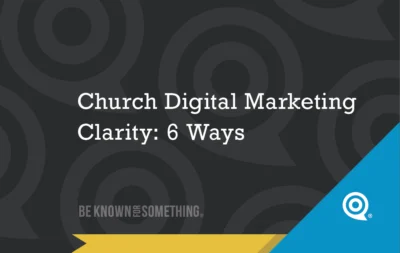
Church Digital Marketing Clarity: 6 Ways
Church digital marketing has become unavoidable. Churches everywhere feel the pressure to show up online. However, many pastors and leaders
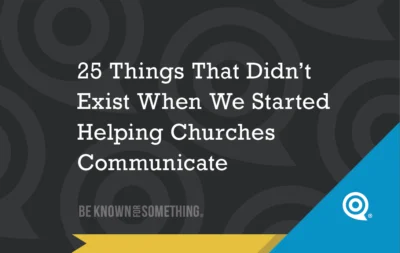
25 Things That Didn’t Exist When We Started Helping Churches Communicate
Back in 2001, we launched Be Known for Something from the old Krispy Kreme test-kitchen and marketing offices in Winston-Salem,
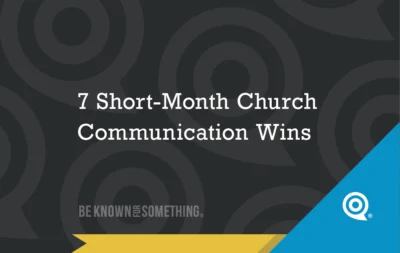
7 Short-Month Church Communication Wins
February is the shortest month of the year, which makes it perfect for simple church communication improvements that don’t require

